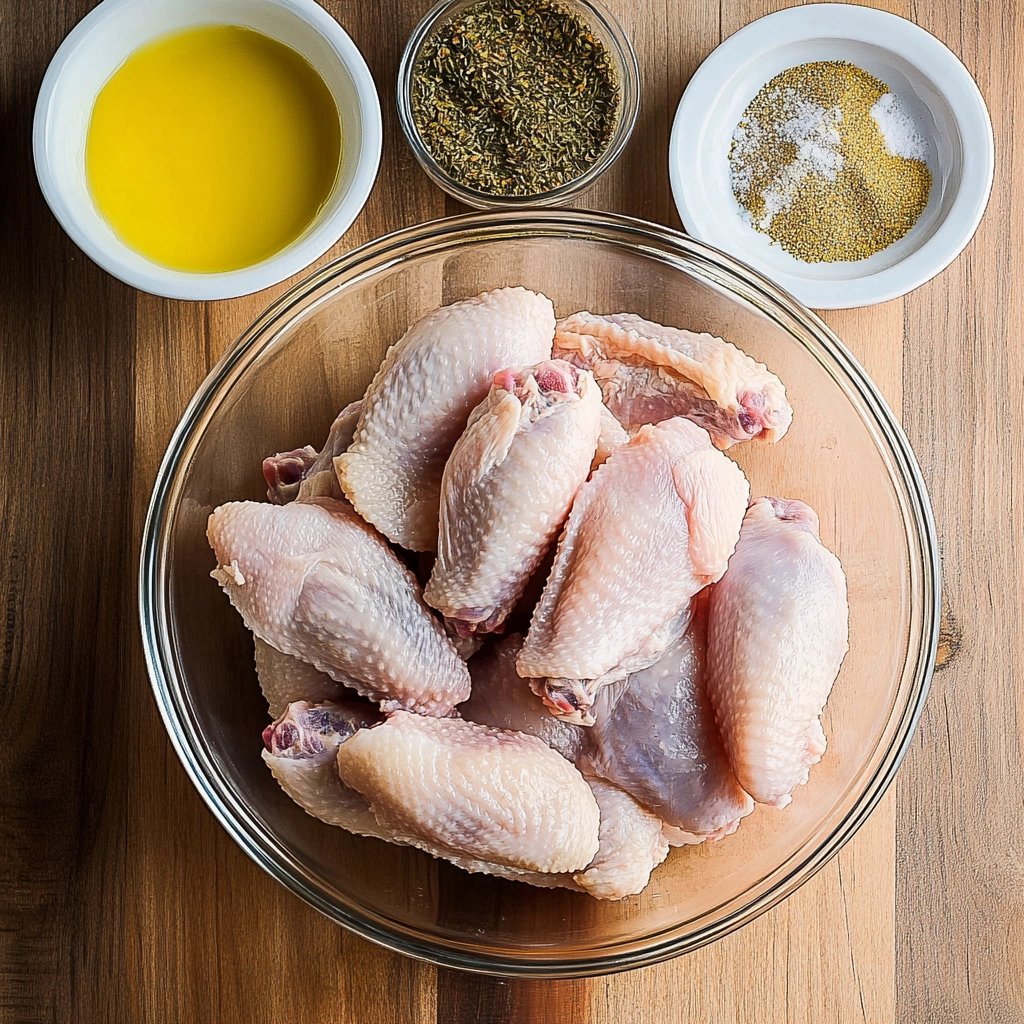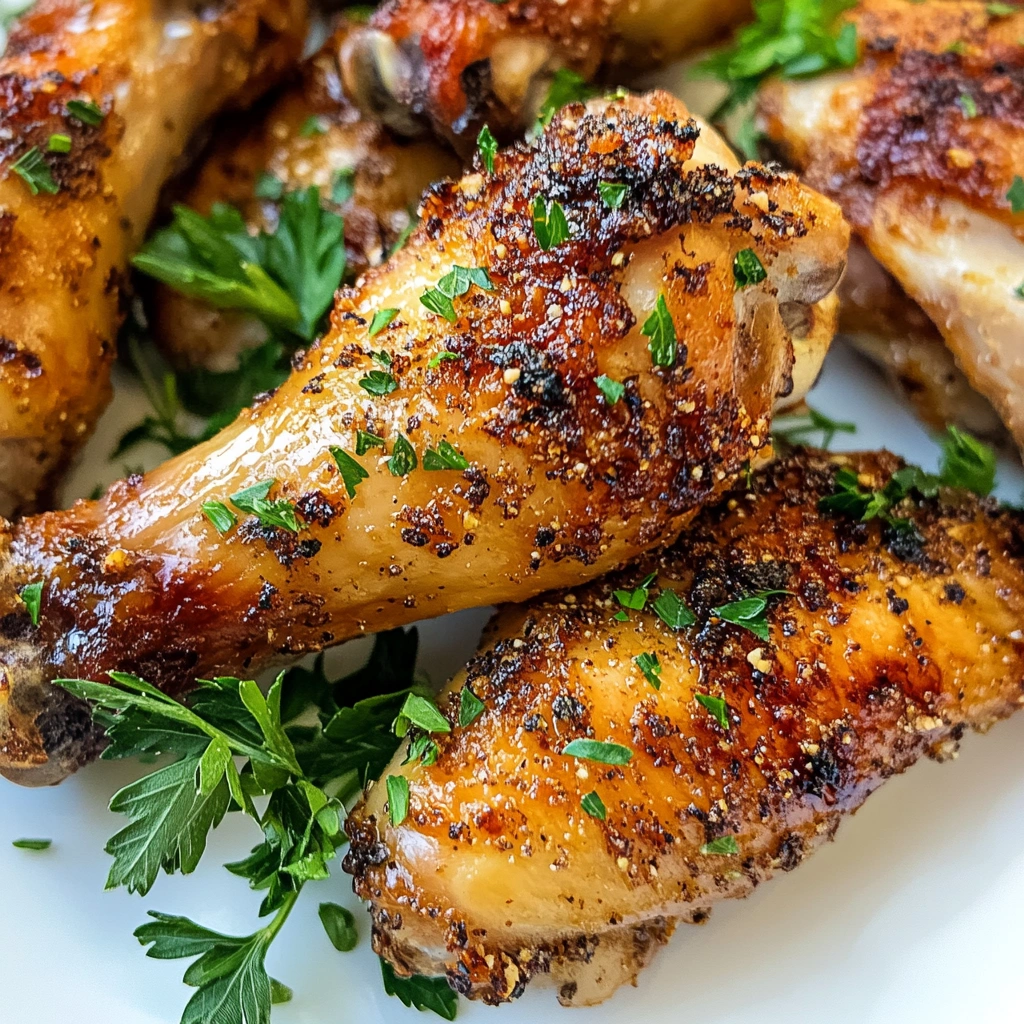Alright, let’s talk turkey—literally. If you’ve ever cooked turkey wings and wondered, why do you soak turkey wings in vinegar, you’re in the right place. This practice isn’t just an old wives’ tale; there’s real science and tradition behind it. Whether you’re prepping for a holiday feast or just whipping up some wings for dinner, understanding why you soak turkey wings in vinegar can change the way you cook turkey forever
For more tips and recipes on cooking turkey wings, check out our guide on Mastering the Art of Cooking Turkey Wings.
The Main Reasons for Soaking Turkey Wings in Vinegar
Why do you soak turkey wings in vinegar? It isn’t just about flavor (though that’s part of it!). Soaking turkey wings in vinegar helps with cleanliness, tenderizing, and adding depth to the dish. Let’s break it all down, piece by piece.
1. Cleaning the Meat
Why do you soak turkey wings in vinegar? First and foremost, it’s about cleanliness. This practice, especially common in Caribbean, African American, and Southern households, stems from the belief that rinsing poultry with water alone isn’t enough to remove impurities or the funky ‘poultry smell’ raw meat can have.
When you soak turkey wings in a vinegar-water solution, it helps:
- Remove surface bacteria (vinegar has antimicrobial properties).
- Wash away any lingering feathers or grit.
- Neutralize odors from the meat.
Some people even add salt or lemon juice to the soak for an extra cleaning boost.
Pro Tip: Use white vinegar or apple cider vinegar, as both work great for cleaning and tenderizing.
2. Tenderizing the Meat
Why do you soak turkey wings in vinegar? Turkey wings can be tough, especially if overcooked. Soaking them in vinegar helps tenderize the meat, as the acidity breaks down proteins, making the wings more tender and juicy. This is particularly helpful when grilling, baking, or frying, where the cooking method might otherwise dry out the meat.
Here’s what happens:
- The acidity in the vinegar starts to denature (break apart) the proteins in the turkey.
- This process makes the meat softer and easier to chew.
- If you marinate the wings after soaking them in vinegar, the flavors penetrate better because the meat’s texture is more open.
3. Enhancing Flavor
Why do you soak turkey wings in vinegar? While vinegar itself is tangy, it subtly boosts the overall flavor of your dish. Even if you rinse off the vinegar after soaking, its effects linger. That slight tangy base pairs perfectly with the spices and marinades you add later, acting as a flavor primer that sets the stage for your seasoning to shine.
Side Note: If you love BBQ or spicy turkey wings, the vinegar soak can bring out the smoky and spicy notes like a dream.
4. Tradition and Culture
Let’s be real—sometimes, we soak turkey wings in vinegar because Grandma said so. It’s a tradition passed down through generations, especially in African American and Caribbean cooking. While the science of vinegar’s cleaning and tenderizing properties makes sense, there’s also something comforting about sticking to methods that have worked for decades.

How to Soak Turkey Wings in Vinegar
Now that you know why people soak turkey wings in vinegar, let’s get into the how. It’s super simple, and you probably already have everything you need.
What You’ll Need:
- Turkey wings (duh!)
- White vinegar or apple cider vinegar
- Water
- Optional: Lemon juice, salt, or a few herbs for extra cleaning power.
Steps:
- Rinse the turkey wings under cold running water to remove any loose debris.
- Prepare the soak solution: Mix one part vinegar to two parts water in a large bowl or container. For example, if you’re using one cup of vinegar, add two cups of water.
- Add the turkey wings to the solution. Make sure they’re fully submerged.
- Let them soak for 30 minutes to 1 hour.
- If you’re short on time, 15 minutes can still do the trick.
- Don’t soak for too long, though—vinegar can make the meat overly mushy if left too long.
- Rinse the wings thoroughly under cold water to remove the vinegar.
- Pat them dry, and they’re ready for seasoning or marinating!
Common Questions About Soaking Turkey Wings in Vinegar
1. Does vinegar kill bacteria on turkey wings?
Vinegar has some antimicrobial properties, which can help reduce surface bacteria. However, it’s not a substitute for proper cooking! Always cook turkey to an internal temperature of 165°F to make it safe to eat.
2. Can I use apple cider vinegar instead of white vinegar?
Absolutely! Apple cider vinegar has a slightly sweeter, milder flavor, which can be nice if you don’t want a strong tang. Both types work equally well for cleaning and tenderizing.
3. What if I don’t have vinegar?
If you’re out of vinegar, you can use lemon or lime juice as a substitute. Both are acidic and will have similar effects on the turkey wings.
4. Does soaking in vinegar change the flavor?
It can add a slight tang, but it’s not overwhelming. Rinsing the wings after soaking minimizes the flavor impact. If you love tangy dishes, though, leave a hint of vinegar on the wings before seasoning.
5. Is it safe to soak turkey wings in vinegar?
Totally! As long as you don’t soak them for hours on end, it’s perfectly safe. Stick to 30 minutes to an hour, and always rinse the wings well afterward.

Cooking Ideas for Vinegar-Soaked Turkey Wings
Once your wings are cleaned, tenderized, and ready to go, you can cook them a million ways. Here are a few ideas to get you inspired:
1. Oven-Baked Turkey Wings
Season the wings with garlic powder, paprika, onion powder, salt, and pepper. Roast them low and slow for crispy, juicy perfection.
2. BBQ Turkey Wings
After soaking, toss the wings in your favorite BBQ sauce and grill them until sticky and charred. Pro tip: Add a splash of vinegar to your sauce for an extra tangy kick.
3. Fried Turkey Wings
Bread the wings with seasoned flour and fry them up golden brown. A vinegar soak keeps the meat tender, even after frying.
4. Braised Turkey Wings
Cook them low and slow in a flavorful broth with onions, garlic, and herbs. The vinegar soak helps the meat soak up those braising flavors like a champ.
Other Benefits of Soaking Turkey Wings in Vinegar
If you’re still on the fence about soaking turkey wings in vinegar, let me hit you with some extra perks. This simple step isn’t just about tradition or tenderizing—it has some practical benefits that’ll make your cooking game even stronger.
5. Helps Balance Rich Flavors
Why do you soak turkey wings in vinegar? Turkey wings are often cooked with rich, bold seasonings like smoked paprika, garlic, and cayenne. Soaking them in vinegar helps balance these flavors. The subtle tang from the vinegar offsets the heaviness of buttery or oily marinades, acting like a reset button on the wings before layering them with spices.
6. Improves Texture for Frying
When you’re frying turkey wings, texture is everything. You want a crispy outside and a tender inside, right? The vinegar soak sets you up for success by breaking down the meat just enough to keep it juicy under that crispy crust. Plus, it makes the skin slightly more porous, helping any flour or batter stick better for that golden, crunchy finish.
7. Perfect Prep for Smoked Turkey Wings
Planning to smoke your turkey wings? A vinegar soak is like a flavor pre-treatment. The acidity preps the meat to absorb smoky flavors even more deeply. Whether you’re using hickory, applewood, or mesquite, the vinegar gives your wings a head start on soaking up all that smoky goodness.
8. Shortens Cooking Time
One sneaky benefit of soaking turkey wings in vinegar is that it can shave off some cooking time. The acid starts breaking down proteins in the meat, allowing the wings to cook faster than untreated ones. So, why do you soak turkey wings in vinegar? It’s especially helpful when you’re short on time but still want tender, flavorful results.
9. Reduces Risk of Dryness
Turkey wings can dry out if you’re not careful, but soaking them in vinegar helps retain moisture during cooking. Even if you accidentally leave them in the oven a little longer than planned (it happens!), they’ll still stay juicy and tender. So, why do you soak turkey wings in vinegar? It’s a simple step that ensures delicious results every time.
FAQs
Can I use other types of vinegar?
Yes, apple cider or white vinegar works best, but rice vinegar is another good option.
How long should I soak the wings?
30 minutes to 1 hour is ideal.
Do I have to rinse the wings after soaking?
Yes! Always rinse thoroughly to avoid overpowering flavors.
Is vinegar soaking necessary?
It’s not mandatory, but it’s highly recommended for cleaner, tastier, and more tender wings.
Conclusion
So, why do you soak turkey wings in vinegar? Whether it’s for cleaning, tenderizing, or boosting the flavor, this simple step has a big impact on the final result. From removing any unwanted odors to ensuring the meat stays juicy and tender, vinegar is a secret weapon that makes your turkey wings not only easier to cook but also more delicious. Plus, the added benefit of enhancing the flavors of your spices and marinades is something you won’t want to miss out on.
Why do you soak turkey wings in vinegar? Next time you’re prepping your turkey wings, give this vinegar soak a try. It’s a small effort with a huge payoff—whether you’re baking, frying, grilling, or smoking. Trust me, once you try it, you’ll wonder how you ever cooked turkey wings without it!
So, what are you waiting for? Grab some turkey wings, a bottle of vinegar, and get cooking—your taste buds will thank you!

